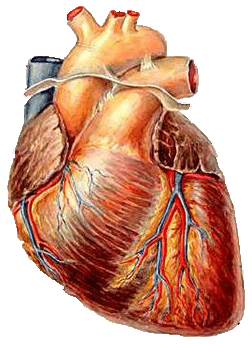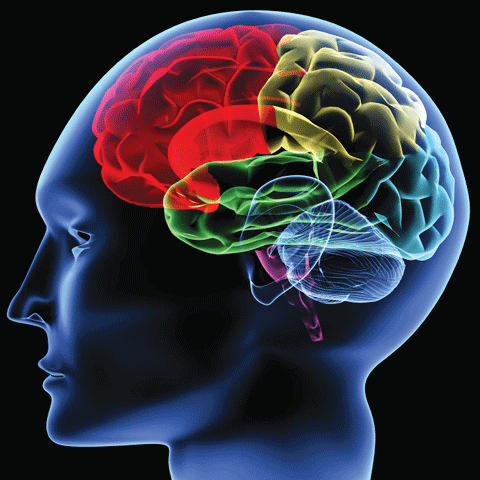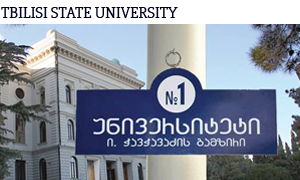

Joint research was conducted in 2011-2013 out in Romania and Georgia on pollution in the Black Sea. The Georgian team worked with leading German and Greek environmental scientists within a project entitled „Investigation of Submarine Groundwater Discharge (SGD) for preventing pollution and eutrophication of the coastal Black Sea“, funded by the Shota Rustaveli National Science Foundation and the European Commission.

In the light of limited natural energy resources physicists believe today that it is vitally important to consider generating electricity using controlled thermonuclear synthesis. To study thermonuclear synthesis, which is the same type of energy that makes sunshine, it is essential to study the features of plasma.
Professor Nodar Tsintsadze, Full Professor of the Subdivision of Plasma Physics at the Physics Department of the TSU Faculty of Exact and Natural Sciences since 1960, and Academician, points out that the USA, Japan, China, Russia and the European Union are financing research into laser thermonuclear synthesis as an alternative energy source. Since 2010, the European Union has been planning the construction of powerful equipment called HiPER (High Power Laser Energy Research Facility) which will produce high temperature plasma to enable favorable thermonuclear reactions.

Organ regeneration plays an important role in the main vital processes of living organisms. Scientists explain that usually physiological regeneration is the basis for tissue repair, while in cases of organ damage (traumas, pathologies) or resection (partial removal of an organ or other body structure), reparative regeneration takes place, ensuring partial or complete organ restoration.

Studying the existing coalfields and gas deposits available in Georgia has been a principal activity for TSU’s Caucasian Aleksandre Tvalchrelidze Institute of Mineral Resources. Apart from the economic significance of methane, it presents a hazard for local populations if not correctly managed. The tragic incidents of 2011-12 that took the lives of more than 20 miners as a result of methane explosions in a Tkibuli coal miners have shown it is essential to undertake further research. Between 2010 and 2012, with financing by the Shota Rustaveli National Science Foundation, the Institute carried out a geological and economic evaluation of gas in the Tkibuli-Shaori coal seams to substantiate a rationale and methodology for extraction.

Since 2000, TSU researchers have been studying the issues of influence of a drug Zafirlucast on the cardiovascular system after different types of cardiac muscle damage occurs. The research is being carried out by the TSU Department of Pharmacology and ltd “International Center of New Biomedical Technologies”, and is continuing at the Department of Pharmacology of the TSU Faculty of Medicine.

Georgian geography grew out of the period of classical antiquity, and in the 18th century experienced a revival when works by Vakhushti Bagrationi, Description of the Kingdom of Georgia and the Geographical Atlas were published. Bagrationi was one of the most remarkable scientists of that period and his work has not lost its scientific and practical importance. His two principal publications have been listed inUNESCO’s Memory of the World Register. The Institute of Geography marked the 300th anniversary of Bagrationi’s birth in 1997 by re-publishing his atlas and organizing commemorative events. At the same time the Institute published a new Georgian Atlas.

According to conclusions of Georgian geographers, the state border of Georgia is depicted differently on topographic maps issued during various years of the 20th century. There is no indication of the scale that was used for the map showing official border data. The location of some geographical sites indicated in some scientific studies and on small-scale maps (including schools) also triggers uncertainty.

Over the past years nanotechnology has been established as one of the most dynamically developing interdisciplinary sciences. Potential applications for nanomaterials in medicine and pharmacology are many and this has become a priority direction that will lead to solutions for some of the most painful health problems. However, modern nanotechnologies necessitate the creation of new directions of scientific research—uniting the scientific achievements of nanotechnology and biotechnology has led to the creation of a new discipline – nanobiotechnology. This will lead to nanoconstructions that can manage biosystems at a molecular level. Nanofluids consisting of magnetic nanoparticles are of special interest.

DNA research is one of the major tasks for scientists working at the molecular and atomic physics. One of the key components of DNA is protein, and its transfer processes play a major role in the course of chemical and biochemical reactions. This is confirmed by prototropic tautomerism, hydration, dehydration and especially proton transfer between nucleotide bases that cause mutations in DNA. Scientists are especially interested in researching proton transfer mechanisms between the atoms separated by one, two or three chemical bonds as it is directly linked with the mutational processes ongoing in biologically active heterocyclic compounds. Frequently, proton transfer takes place in an organic molecule, however the mechanisms of this process are not yet known. Many scientists are working over this problem internationally including those in the Physical Chemistry Department of Tbilisi State University, led by Professor Jumber Kereselidze.

Stress is closely linked with the process of industrialization and it can cause or significantly aggravate human diseases and disorders including cardio-vascular disease, disorders of the immune system, impaired neurodegenerative processes and tumors. Stress has a negative influence on labor capacity by causing short term memory loss, absenteeism, poor concentration, increased aggressiveness, etc. The American Psychological Association (APA) describes chronic stress as “the stress of unrelenting demands and pressures for seemingly interminable periods of time.” The major causes of human mortality are connected with stress--like heart and lung diseases, cancer, accidents, cirrhosis and suicide. Georgian scientists have joined the world of research on this subject.



